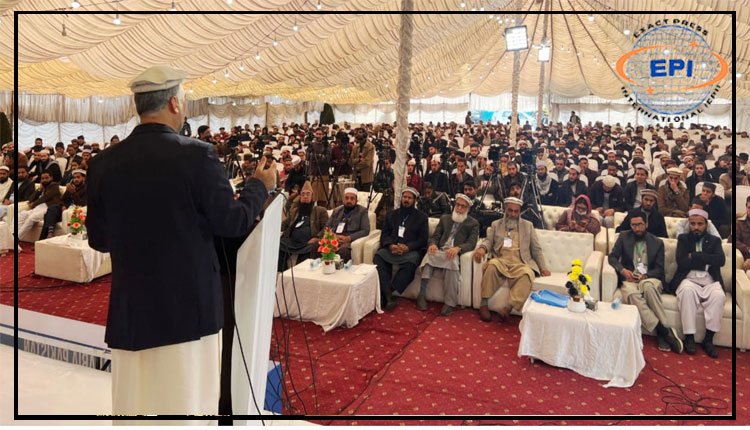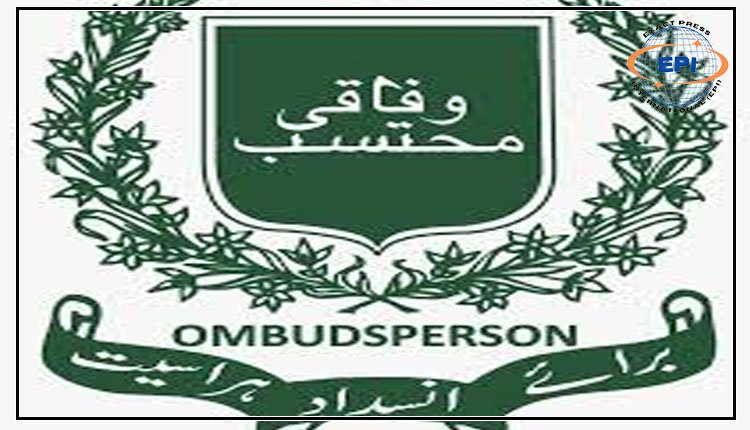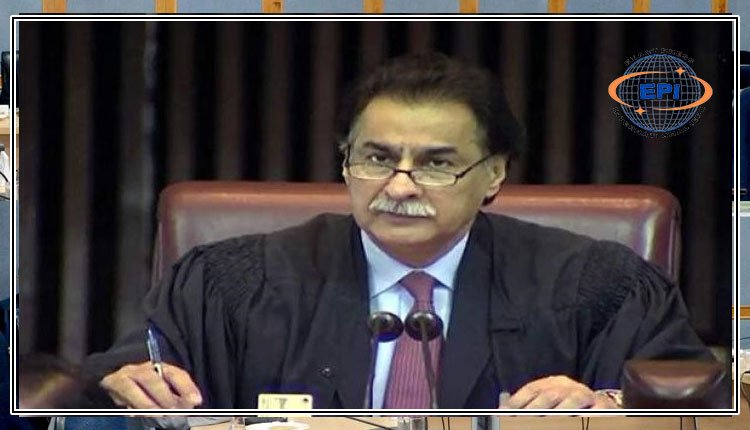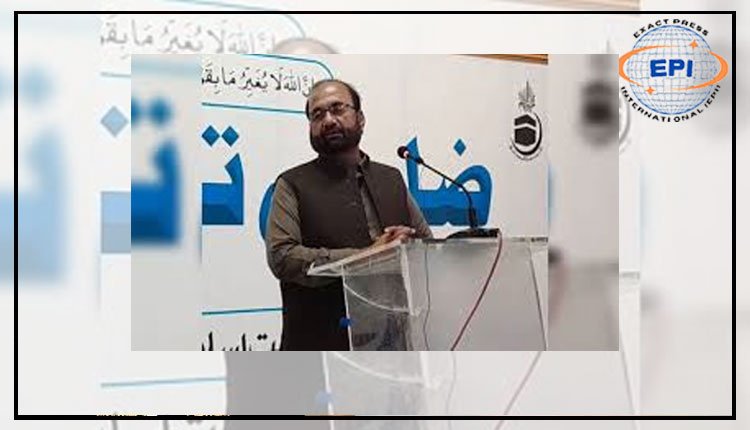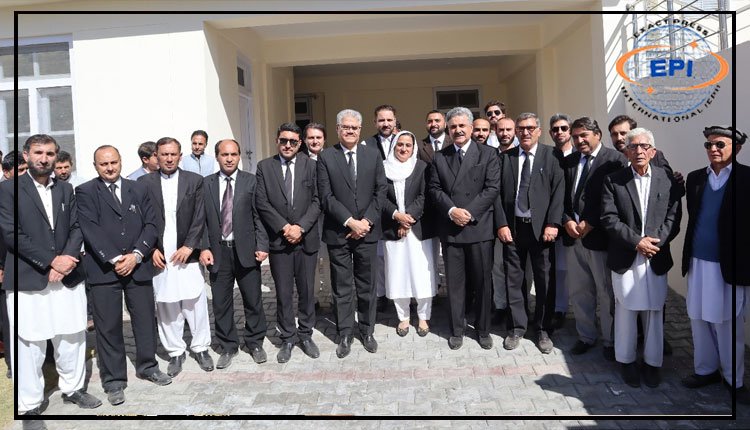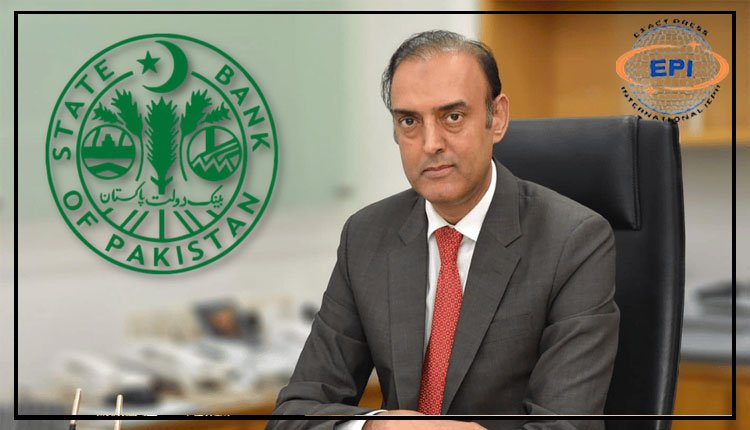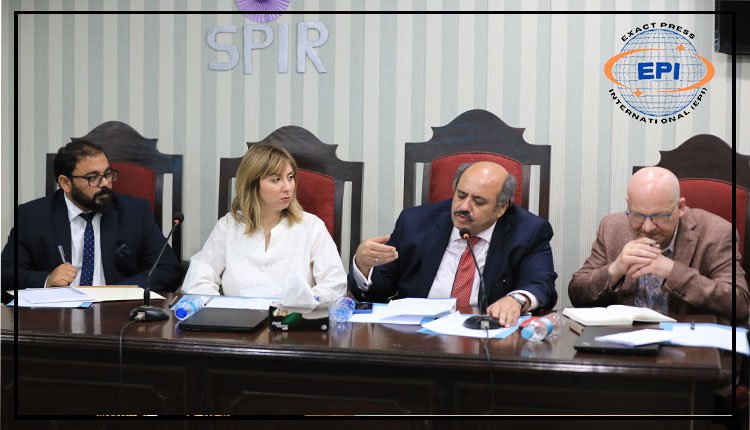Nuclear crisis management & trust-building a conversation with British American Security Information Council (BASIC), London, U.K
ISLAMABAD, Oct 07 (EPI): The School of Politics and International Relations (SPIR) at Quaid-i-Azam University, Islamabad, hosted a delegation from the British American Security Information Council (BASIC), London, for an insightful session titled “Nuclear Crisis Management and Trust-Building.”
The event brought together nuclear security experts and held a discussion around BASIC’s report, “Crisis Prevention and Management in South Asia: Mutual Confidence, Risk, and Responsibility”.
The report outlined policy recommendations from a multiyear research project evaluating confidence between India and Pakistan through Track 1.5/2 dialogues.
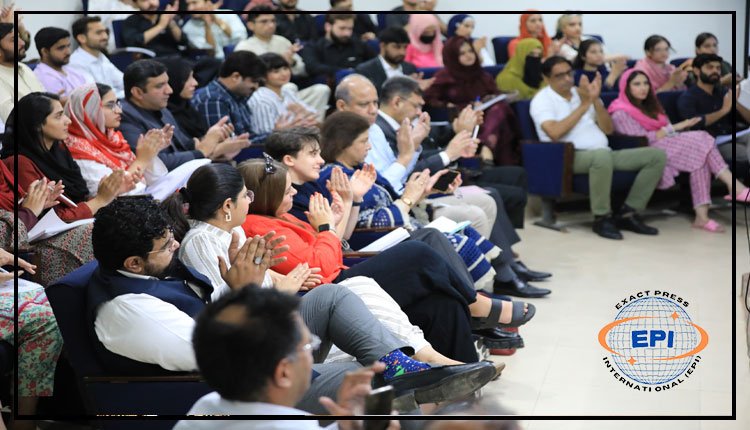
The project focused on strengthening bilateral confidence-building measures (CBMs) and examined why, despite conventional conflicts, India and Pakistan have avoided nuclear escalation. Professors Zafar Nawaz Jaspal and Nicholas J. Wheeler discussed the 2019 Pulwama incident and its aftermath, highlighting the pattern of conventional engagement without triggering a nuclear response.
The BASIC report suggested that this restraint is due to mutual confidence that neither side would resort to nuclear retaliation. However, it stressed that this confidence is fragile, lacking formal structures, and called for institutionalized mechanisms to manage tensions between the two nations.

Mhairi McClafferty, Policy Fellow at BASIC, furthered the idea of fragility in mutual confidence and the role of chance in preventing nuclear conflict between India and Pakistan. McClafferty highlighted the recommendations from the report which included the establishment of a South Asian Security Confidence Arrangement (SASCA), a hotline between the leaders of India and Pakistan, enhanced Confidence Building Measures (CBMs), and media-driven de-escalation narratives
Speaking on the issue of a hotline between the India and Pakistan, Dr. Jaspal highlighted that during the Pulwama exchange, when the Prime Minister of Pakistan, Imran Khan wanted to get in touch with the Indian Prime Minister, due to a lack of of a dependable hotline Mr. Khan could not get a hold of him and was told that he was unavailable at that moment.
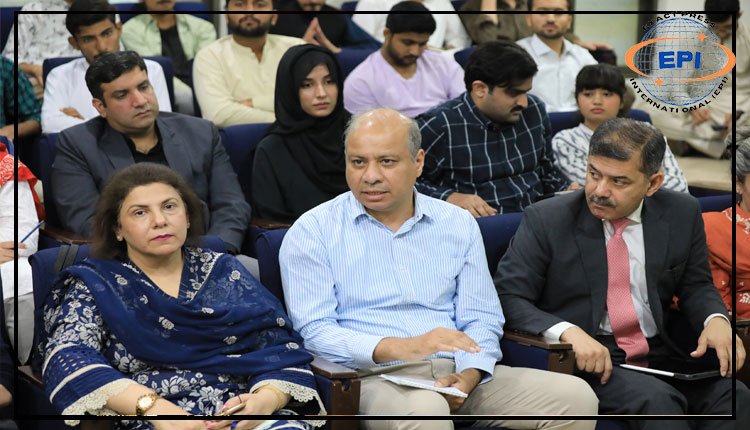
Instances such as these highlight the need for a dependable connection between the two parties and emphasizes the fragility of the situation.
Prof. Dr. Jaspal disagreed with BASIC’s assessment of third-party involvement, arguing that Pakistan no longer views the United States as a neutral actor due to its strategic alignment with India.
He emphasized the importance of Pakistan and India managing their own nuclear tensions without external intervention.
He also critiqued the continued focus on third-party mediation, attributing it to the influence of internationally educated civil-military elites.
He reiterated that arms control is no longer fashionable, and disarmament is off the table, emphasizing that Pakistan and India must take responsibility for managing their nuclear arsenals.
Dr. Nicholas J. Wheeler added that one key reason for avoiding large-scale conflict is both countries’ ability to manage tensions in ways that allow them to save face. Dr. Chiara Cervasio, Policy Fellow at BASIC, emphasized this, noting that face-saving strategies were central to both India and Pakistan’s decisions to de-escalate.
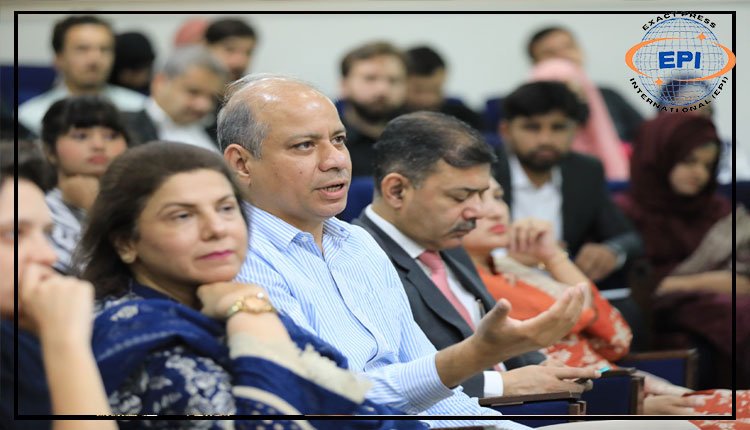
In response to a student’s question, the BASIC delegation clarified that the portrayal of South Asia as a volatile nuclear flash point is exaggerated. Their research shows resilience in the region’s nuclear management, but they underscored the need for more robust CBMs and dialogue-based frameworks to ensure ongoing stability.
The session, moderated by Dr. Summar Iqbal Baber, Assistant Professor at SPIR, fostered lively interaction between the panellists and attendees. The discussions offered valuable insights into nuclear crisis management and the need for trust-building to prevent future conflicts in South Asia.
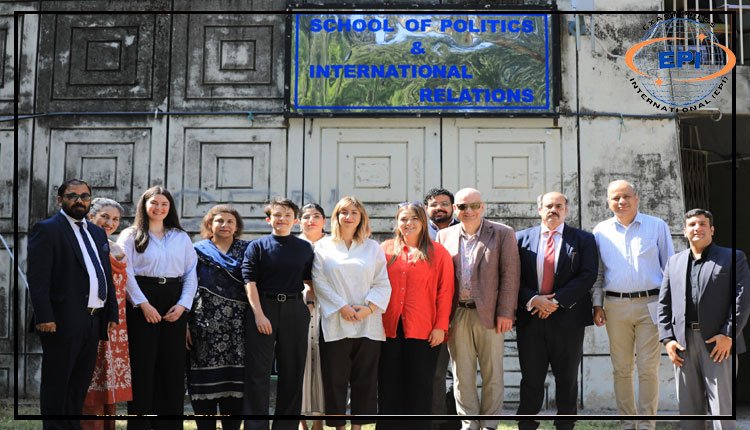
Ends-Exact Press International-Author: Muhammad Talha Shakil

